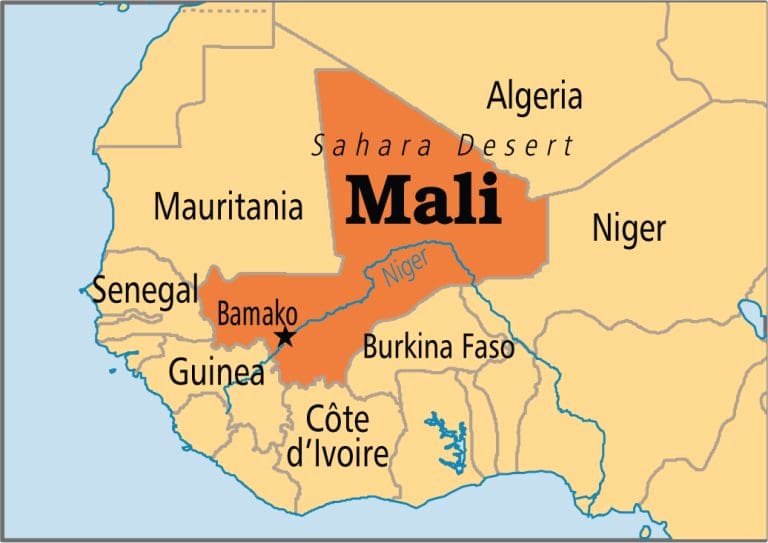In July, the Malian transitional authorities had demanded the replacement of the MINUSMA spokesman.
The announcement was made on the 8pm news on the national channel by a statement read by the government spokesman, Colonel Abdoulaye Maiga. The Director of the Human Rights Division of the United Nations Multidimensional Integrated Stabilisation Mission in Mali (MINUSMA), Guillaume Nguefa-Atondoko Andali, has been declared “persona non grata.” As a result, he is ordered “to leave the national territory within 48 hours.”
The government accuses him of engaging in “destabilising and subversive acts (…) in flagrant violation of the principles and obligations that must be observed by United Nations officials and any diplomat accredited to Mali, in accordance with the relevant international conventions.”
Among the grievances against Mr Andali is the selection of “usurpers claiming the title of representative of Malian civil society while ignoring national authorities and institutions (…) on the occasion of the various sessions of the United Nations Security Council on Mali.” The government states that Mr Andali “has never been able to prove the criteria that enabled him to identify the civil society representatives he used.”
The communiqué refers in particular to the last UN Security Council review of Mali, on 27 January, during which Aminata Cheick Dicko, a member of the Kissal Organisation, intervened to draw the attention of the international community to the exactions against Fulani civilians committed by jihadists and regular armed forces and their Russian partners.
According to the communiqué, this role had been entrusted to a first person by Mr. Andali who refused it.
According to the authorities, “the conspiracy is all the greater because the organisation that the usurper claims to be is a foreign association that is not registered and has no right to operate in Mali. As a reminder, this crime has been denounced by several actors, including the National Council of Civil Society and the Coordination of Women’s Associations and NGOs of Mali (CAFO).”
While reiterating “its availability to maintain dialogue,” the government intends “to continue cooperation with all its partners, in accordance with the three principles of Goïta, namely: respect for sovereignty; respect for strategic choices and choices of partners made by Mali; and taking into account the vital interests of the Malian people in the decisions taken,” the statement said.
This is the second MINUSMA official to be expelled by the transitional authorities in Mali. Last July, following the arrest of 49 Ivorian soldiers finally pardoned by Colonel Assimi Goïta after being sentenced to 20 years of criminal imprisonment, the mission’s spokesperson, Olivier Salgado, suffered the same fate following tweets he made claiming that the authorities were informed of their arrival as members of the National Support Elements (NSE).
This reaction from the transitional authorities was expected insofar as they have always reproached the UN mission for “instrumentalising” the issue of human rights. Moreover, when the resolution renewing MINUSMA’s mandate for a further year in June 2022 was voted, the government had clearly stated that it would not respect certain provisions, in particular those granting freedom of movement to MINUSMA officers who wished to investigate allegations of human rights violations.
MD/ac/lb/abj/APA


